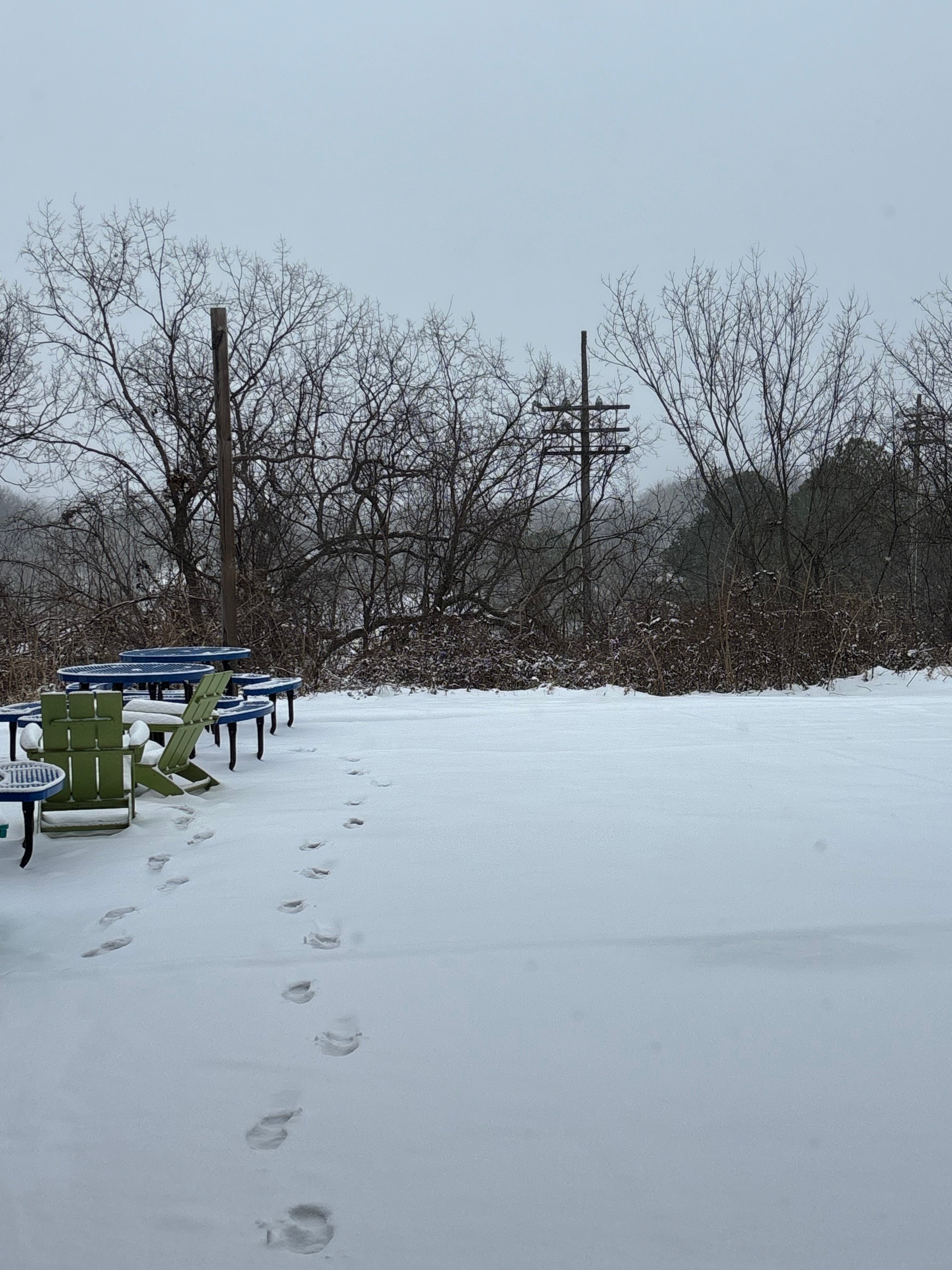![]()
Editor’s Note: This is a slight continuation of an article published last year. For more information on the ProPublica report on Liberty University or Title IX in general, please read “Recent waves of Title IX issues pummel Christian universities.”
Title IX Experiences
Over the past few years, schools in the Council for Christian Colleges and Universities have come under fire for their alleged misuse and neglect of Title IX in the face of harassment, assault and exploitation. John Brown University, one of the members of the CCCU, has its own history of Title IX qualms.
Basil Branum, a JBU graduate, was no stranger to harassment or Title IX issues at JBU and decided to come forward with their experience.
During September 2020, Branum helped organize and carry out a protest against the campus visit of conservative activist Eric Metaxas, who allegedly had sponsored conversion therapy, and at the time had recently been caught on camera in an altercation with a protestor.
The protest garnered a large amount of negative attention, with many students taking to anonymous Instagram meme pages to make fun of protesters. The situation escalated, and, for days, students engaged in dramatic online warfare that resulted in controversy on campus. That’s when things went too far.
“Someone, I don’t know who, but I’m still very proud of the move they made, leaked a group chat that had the names of individuals that we ended up having the case against,” said Branum. “The chat contained messages about how they wanted to kill people, who they called the ‘blue-haired whales’ on campus. At that point, only a few people had blue hair, and it was quite clear who they wanted to shoot, and it was not much of a joke.”
Branum, who had blue hair at the time, knew that they were a target. “That circulated, and then there were a lot of other posts, a lot of other stuff going on publicly on social media that was clearly meant to intimidate, deface and just belittle due to sexuality and gender.” They noted, however, that they “weren’t surprised in the slightest.”
That’s when they decided to get the university involved.
“I emailed Jen Edwards and Tracy Balzer pretty immediately after we noticed what was going on. They sent us to Amy Fisher. Those are the people I really remember talking to. I pretty much distanced myself from every faculty member at that point.” At the time, Edwards served as the Interim Conduct Officer at JBU, while Balzer was the Interim Chaplain. Amy Fisher is JBU’s Title IX Coordinator.
Natalie Rogers, a senior at JBU, also decided to come forward, but had a slightly different experience. “My experience was neutral, leaning towards positive,” she said. “I had been touched inappropriately by a male classmate who got me alone freshman year.” The case, which started in April 2019, lasted from the last two months of the semester to the summer.
“I received a call from the committee about whether I wanted to prosecute, which would require talking to my attacker, and, out of fear I said no. I cried a ton and was really concerned about him finding out and ruining my reputation. I think that there is a lot of struggle between facing your attacker and making a case, and, while anonymity can be abused, I highly doubt it will be because of the incredible risk to the victim should it get out and is worth thinking about.”
Accountability
Branum claimed that there were no clear punishments, and that the follow-up with the Title IX office was disappointing.
“We were told that the ruling was found in our favor, and that’s it. Legally, they do not give reports on punishment to us. They’re not legally allowed to divulge the punishments applied, which I think is really messed up because it allows for zero accountability. You’re not allowed to know, and you never get to know if the punishment was ever fulfilled or carried out. There was no follow-up after that.” Despite the verifiable death threats leading to a seemingly successful and closed Title IX case, Branum held doubts that the accused were ever punished.
Fisher, JBU’s Title IX coordinator, explained how disciplinary actions are handled and how victims are made aware. “The only times that a reporting party is required to be notified about the sanctions put in place when there is a violation of the policy are when the complaint is regarding sexual assault. They are notified if there is a finding but not what the sanctions are for sexual harassment complaints.”
JBU’s response to the controversy itself was hailed as vague and unhelpful by all parties involved. “Completely horrible,” said Branum. “They never once sent out a message to campus saying, ‘This is unacceptable. It’s unacceptable to send death threats to fellow students. We stand with our students, no matter who they are, because we are Christians, and we love people.’ They didn’t say anything.”
Branum added, “They admonished us and said that we were too upset about the fact that this was happening. Any sort of support I got from administration had to be quiet because they didn’t want to get in trouble with higher-ups, or it was required because they couldn’t say no to supporting us or going forward with the Title IX case.”
Branum noted that this was not the first time they had tried to file Title IX. “There were incidents before that, but we never made it to Title IX, because we were discouraged from going that far. That was my first experience with it, and that was about a year before.” Branum explained that the dean of Student Life at the time was the one who outright discouraged them.
In regard to the issue of accountability, Rogers said that she isn’t sure what happened after the case was closed. “The attacker is still on campus, and I am entirely unaware of whether or not they were punished.”
JBU’s Relationship with Title IX
One of the biggest issues that Branum faced was the difficulty that can come with Title IX, as well as JBU’s relationship with it. “The process itself is a deterrent and may notably be a primary reason students don’t report assault, harassment or other Title IX infractions. It is very draining, and a very damaging process. It feels like in the end there’s really no benefit because nothing happens. They don’t err on the side of believing you, they err on the side of being skeptical of you.”
By the end of their time at JBU, only one of Branum’s cases was ever followed through. “It’s just hard because you have to walk into it feeling like you have to make them believe you. You have to prove to them that you are worthy of their time, which is really hard because you shouldn’t have to be doing that. I had to convince them that this was actually serious and not just a situation of people being mean, which is the reaction I got most of the time.”
“They’ll say, ‘Are you sure? Was it that impactful?’ [Staff] like to make it smaller and smaller and smaller until it doesn’t feel like a big enough deal to address. If it makes you want to avoid campus and never go back, that’s plenty enough to be valid, and you can’t let administrators question that.” Branum graduated in the spring of 2021 after taking a semester of online classes with the University of Arkansas. They stopped being on JBU’s campus in the fall of 2020.
Branum had a word of advice for future reporting parties: “Don’t let people minimize the impact that harassment or abuse or any sort of assault has on your life, on your education or on your health. Particularly, for administrators, don’t minimize things that you don’t understand or things you think you understand but haven’t experienced. I feel like there’s a lot of people who tried to understand what I was experiencing and tried to be sympathetic, but they didn’t understand and they minimized my experience and the impact it had on my health.”
The Dangers of ‘JBU Culture’
When talking about why a student would or wouldn’t report, Branum blamed the culture at JBU for why students would choose to not file Title IX. “There are a lot of different reasons why, but there’s plenty enough that it could probably apply to any scenario. There are definitely reasons why they are less likely to report than, say, a student at the University of Arkansas.”
Despite the differences in their cases, Rogers’ view of culture seemed to line up with Branum’s. “I think that evangelical culture plays a huge role in whether or not a girl comes forward because being seen as impure might be more painful than getting justice, and thus silence seems like the best option. Objectification plays a massive role in this,” Rogers said.
Rogers, who serves as a student leader on campus in a variety of roles, is the assistant resident director of Walker Residence Hall. “It is almost always about how they were leading men on or being unstable or not being clear enough, and it is a fundamental flaw of purity culture that we expect women to hold all the responsibility for preventing assault. If we uphold a culture of men as protectors and image-bearers, can they not show the compassion and restraint of their Lord? Can we really call them men if they have the self-control of raccoons? I expect more.”
LGBTQ+ Issues and Gender Discrimination
In dealing with the situation, Rogers noted gender disparity and that both JBU and the system itself are to blame. “The faculty validated me a lot, as long as they were female. Male faculty approached it with disinterest and discomfort. I think that JBU is operating according to the standards, but I think that it’s the standards themselves that need to orient around empathy for victims.”
She continued, saying, “The most positive part of the experience was that a female staff member offered a lot of love and support and assured me over and over that it wasn’t my fault, and that was huge. Getting pointed to counseling was also a huge boon.”
“I think that we see women as objects because of their sense of pain and violation and most often held up against the futures of their attackers, meaning a lot of men aren’t asked to leave campus because it could damage their future on the off chance that they change and become better people,” said Rogers.
Branum shared similar sentiments but regarding the issues that LGBTQ+ students face. “I think if you’re a marginalized group on campus, you are guaranteed these experiences, but you’re just as discouraged — if not more — than everyone else, to report. I would say that you’d be a little more likely to report because there’s two ways of coping with it: confront it or avoid it. Both are valid approaches, but it’s a flip of a coin for marginalized people on campus.” Branum went on to add that people are more likely to report because they are experiencing it more, and that ultimately, they’re just trying to survive.
During a recent Q&A chapel, JBU President Chip Pollard discussed LGBTQ+ issues. In regard to JBU’s position, Pollard said, “We believe firmly, with deep conviction, that human sexuality is reserved for one man and one woman in the covenant of marriage, and we believe God has created male and female. All that being said, we also know that sin affects every aspect of our lives, and there’s brokenness that can happen within your understanding of your gender or your sexuality.”
He continued, saying, “I don’t actually think that JBU is going to change its position on this. I think even as the culture starts to change, even as some of the church starts to change, we have always seen ourselves as not just interdenominational, but interdenominational in the evangelical stance. The church has been pretty consistent for 2,000 years in its understanding of sexuality and marriage.”
Pollard also invoked the CCCU’s relationship with the Fairness for All Act and how that affects JBU’s stance. “We must extend civil rights to LGBT people,” he said. “But at the same time, it allows religious organizations to organize their missions based on their religious convictions. It’s the same thing as almost every civil rights act that’s been passed, but there are ways in which we can engage with the public sphere where we don’t compromise what I understand to be our vision while at the same time reaching out and trying to have a policy that is peaceful that allows them.”
He added, “I think it’s important for everybody to remember we do not require students to be Christian, necessarily, to be here. They can disagree with all sorts of our policies. Students can disagree with our ideas on homosexuality and students have. Now, we don’t necessarily have a platform for people to disagree with our fundamental theological convictions, but we also don’t necessarily discipline people because they have a different view on some issues.”
“Administration tries to make these issues as small as possible,” said Branum. “Addressing it means addressing some of their beliefs, and that’s something they are not willing to do right now. We’ve tried. Professionals have tried. Amateurs and students, like me, have tried. Students continue to try, and it’s not effective because people aren’t willing.”
Title IX and Tech
As technology and social media advance, Title IX gets more complicated. Now, apps like Yik Yak and Instagram can provide near-anonymity for harassers.
“The harassment was primarily on the internet,” said Branum. “The only thing we had evidence for was on the internet, and so that was good because we had screenshots. That’s why we got our Title IX case, because we had screenshots.”
However, Branum felt that the technology brought more harm than good. “There needs to be someone who is watching these things play out online. Students who are being targeted by those sorts of things aren’t usually watching. Once you start getting them, you try your hardest to ignore it and just hope it doesn’t spill out into real life.
Branum noted that JBU needed to step in. “I think the university needs to have someone watching it, because with technology today, a lot of the warning signs of people who are beginning to escalate violence start on social media. You see these behaviors and desires and voiced contemplations put on social media. Those are red flags that should be watched by university staff members because they can be a serious security threat, and I don’t think JBU takes that seriously enough.”
Branum concluded, “In general, I think people need to handle those sorts of issues a bit more seriously because that’s just how this new generation and this new era is working. This is how it’s going to be for now
Photo courtesy of University of California, Santa Barbara





